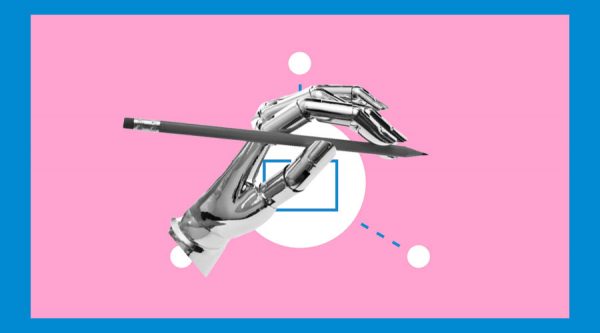Is AI writing going to replace professional content writers’ jobs in the future?
Let’s begin by presenting AI, the pretender and purported bane of content writers. The ability of computers or other machine-controlled systems to perform tasks that’d typically need human intelligence is known as artificial intelligence. Human intelligence comprises emotionality and consciousness, which is the main distinction between it and AI intelligence.
It may be a dream come true for affiliate marketers who want to produce a lot of articles every day. For a content writer who values the process of creating unique content and perceives the technology as a danger to his livelihood, it might be alarming at the same time. While AI writing tools can replace some writers, they’ll never be able to replace truly excellent writers. Basic content that doesn’t require unique study or knowledge can be produced by AI-powered technologies. But without human input, it is unable to develop strategic, narrative-based material that is consistent with your brand.
AI cannot replace human content writers, wondering why? Read on to find
• AI Doesn’t Contain the Art of Storytelling as Humans:
Storytelling is an important component in every content that tries to develop relationships with its audience. A brand’s relationship with its customers is based on effective storytelling, which is how people relate to one another. When creating a story, good writers keep their audience in mind. Unlike AI, they use their experience to create compelling, memorable stories that captivate the target audience. In terms of accuracy and speed, AI can score highly. But when it comes to storytelling, it falls short of the human brain.
• AI Is Uncreative:
A report with 1,000, 000, or even 1,000,000 words might be produced by AI. However, originality is one thing that AI is lacking. The tech writers were astounded by Google’s posting of the poetry produced by its AI. However, the differences between it and thoughtfully crafted poetry are very apparent. The inventiveness of the stuff produced by AI is inferior. It is capable of producing information word-for-word, but more often than not, the texts it produces are coherent.
• AI is Without Imagination:
Similar to creativity, imagination is only now found in humans. AI can perform more difficult tasks because it learns from its input. However, at this time, artificial intelligence is unable to explore new possibilities. It is unable to generate original, creative ideas. The data that AI has been fed forms the basis of the content it produces. AI uses algorithms to create content, and for AI to think like a person, it needs to have emotions.
• Content Produced by Machines Is Without Soul:
The latest AI tool from Alibaba can generate 20,000 lines of copy in one second. The Forbes content bot can accurately create earnings reports. This is so because AI is particularly proficient at producing factual material. But the “humane” touch and the emotions are absent. A few sparse phrases won’t be enough to impress or grab readers’ attention. The content is engaging because of the personal touch, feelings, and consideration that went into it. Although AI is advancing quickly, it is still a long way from being able to write in a human-like manner.
What Effects Will AI Have on the Production of Content?
It is now obvious that AI won’t soon replace the need for content writers. What will it then accomplish in the world of content creation? The answer, then, is pretty much everything else. AI can assist writers in gathering knowledge, which is one thing it can do for them. Research, synthesis, and analysis of all the data need a significant amount of work from the writer. However, a computer program can quickly browse through millions of papers and compile a summary of its findings. So, for content authors, AI can be a great research tool. They will be able to produce content more quickly and accurately thanks to it.
Automated writing appears to be essential and informative. But not all “excellent” stuff can be attributed to that. An AI-driven machine is incapable of reading the information critically or understanding the important linguistic subtleties and nuances. But will it ever be able to achieve that? Maybe in the future, it may pick up on the nuances of language and develop empathy. However, until that time, the content-driven world will still require human writers to establish verbal connections with readers.
Source: analyticsinsight.net









